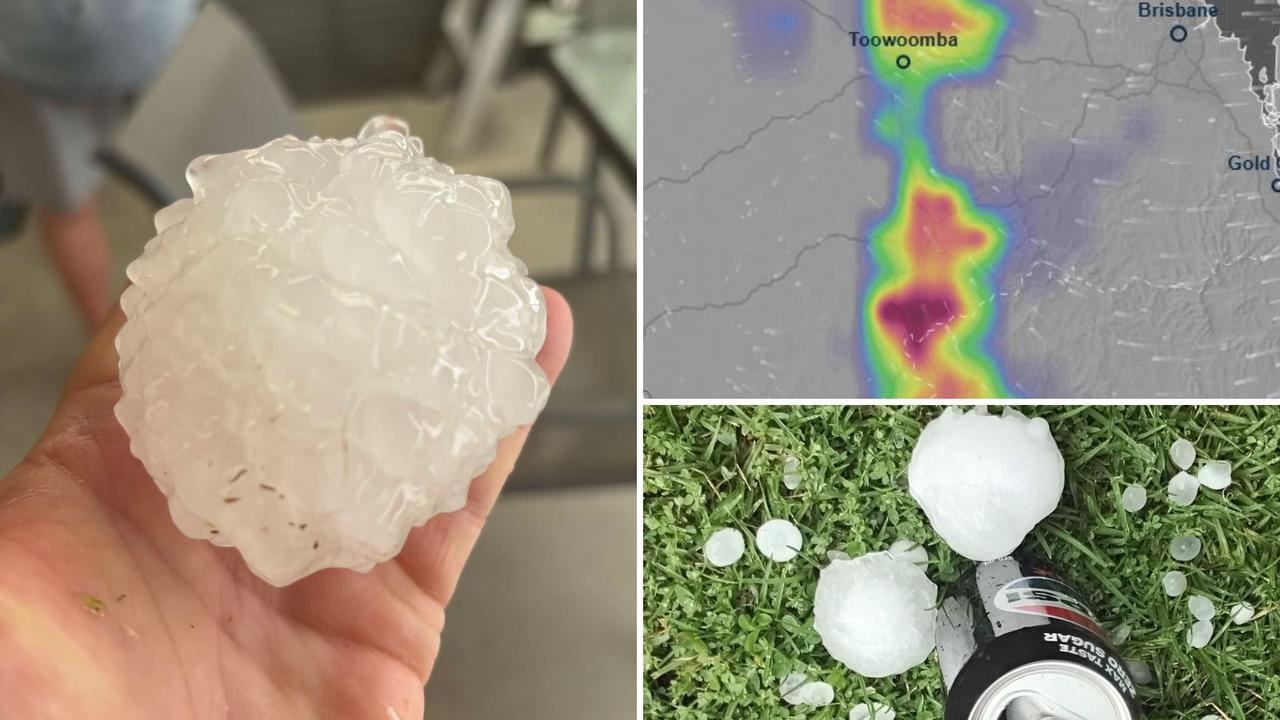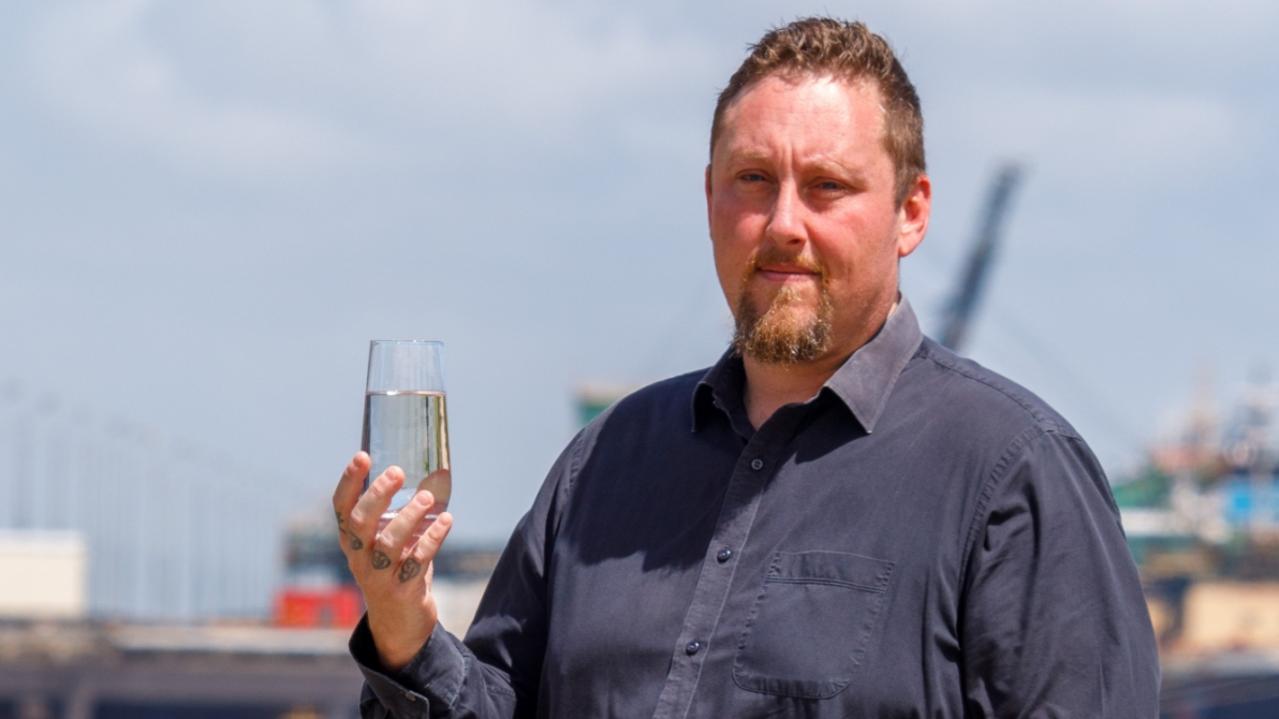Queensland postnatal depression care in the spotlight
HER days were lost in a suffocating black fog of tears, fear and numbness. She stopped eating, could not sleep. It wasn’t supposed to be like this. Nobody said it would be like this.
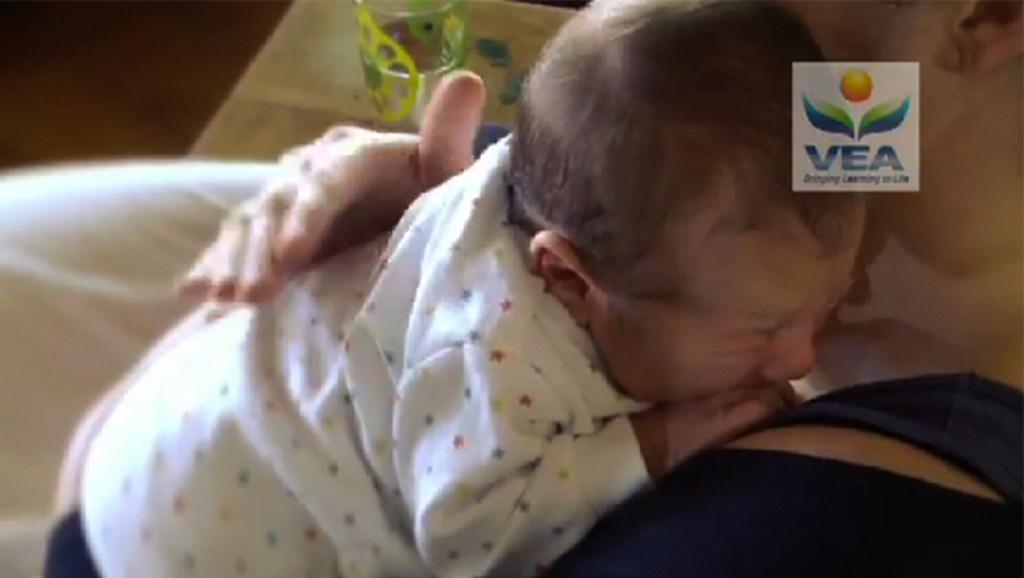
QLD News
Don't miss out on the headlines from QLD News. Followed categories will be added to My News.
IT wasn’t supposed to be like this. Nobody said it would be like this.
In January 2012, beautiful baby Charlotte arrived happy and healthy in a textbook natural birth after an uncomplicated pregnancy, a planned and much-wanted first child for excited Brisbane parents Taryn and Dan Collins.
The expected primal surge of maternal love and joy was almost immediate but, frighteningly, so too were crippling tears and fears.
Within days Taryn, now 34, was struggling to cope and writing motivating missives in the same notebook in which she meticulously logged Charlotte’s every feed: “You’re doing a good job Taryn, it’s just the baby blues, you’ve just got to get through this first bit.”
Dan, a lawyer, went back to work. Taryn’s days were lost in a suffocating black fog of tears, fear and numbness. She stopped eating, could not sleep, did not leave the house, and doubted her ability to love and care for her daughter.
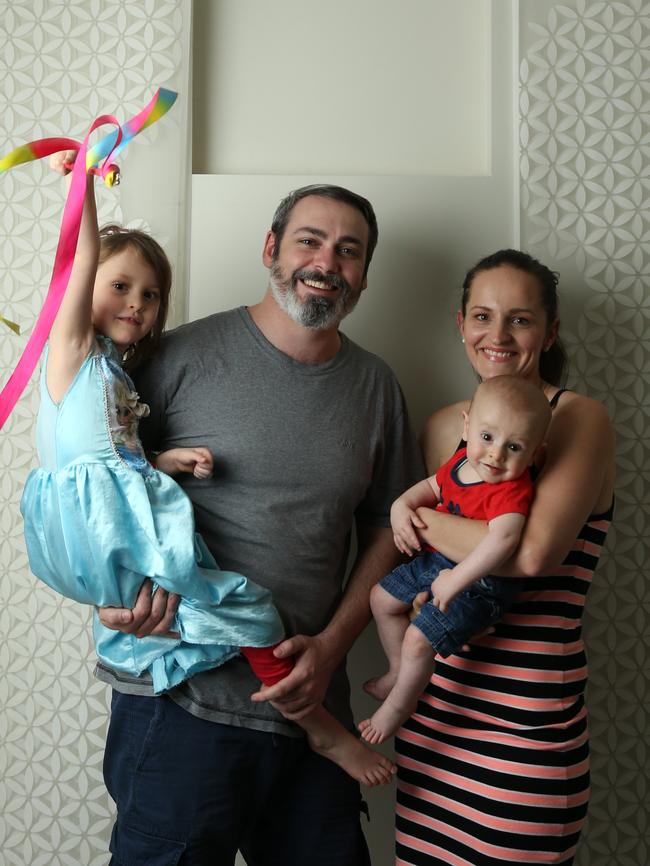
“Like any new mum, I thought I could handle a really busy job (as an occupational therapist); I’d gone without sleep while studying, but I just didn’t have any idea,” Collins says. “The fear of the unknown got me initially – this baby is crying, does she need to be fed or burped or changed?
“There were all these thoughts about how I should know what I’m doing, breastfeeding should be easy, what’s wrong with you, you’re such a failure. It just escalated from there, all these horrible thoughts about myself. I was so lost and scared.”
After three weeks Dan, now 34, concerned at the drastic change in his usually confident and happy wife, convinced her to see a GP. Not satisfied with the first response, they sought a second opinion.
Taryn and Charlotte were immediately admitted to the Brisbane Centre for Post Natal Disorders (BCPND), part of Belmont Private Hospital at Carina, in Brisbane’s east. BCPND is Queensland’s only dedicated mother-and-baby mental health unit, where women diagnosed with severe postnatal depression (PND) get the help they need, as well as support to nurture a relationship with their babies.
Perinatal Anxiety and Depression Australia (PANDA) figures show one in seven expecting or new mums is affected by perinatal anxiety or depression every year, as is one in 10 dads; PANDA says that’s about 100,000 mums and dads nationally.
PND generally occurs between one month and a year after having a baby, caused by a complex, variable mix of biological, psychological, emotional and social factors. Ranging from mild to severe, women’s symptoms can include uncontrollable crying, anger and guilt, inability to sleep despite extreme fatigue, inability to make simple decisions, and feeling unable to cope with the demands of a baby and daily life. It can occur in one (not necessarily the first), some or all of a woman’s pregnancies.
A Qweekend investigation has revealed that Queensland Health’s first mother-and-baby unit mental health will open at the Gold Coast University Hospital early next year. Until then, public, regional and remote patients needing hospitalisation are admitted to acute mental health wards at their closest major public hospital, typically separated from their babies, who remain at home. Accepted best practice is not to separate the pair, treating the mother’s illness while nurturing her bond with her child.
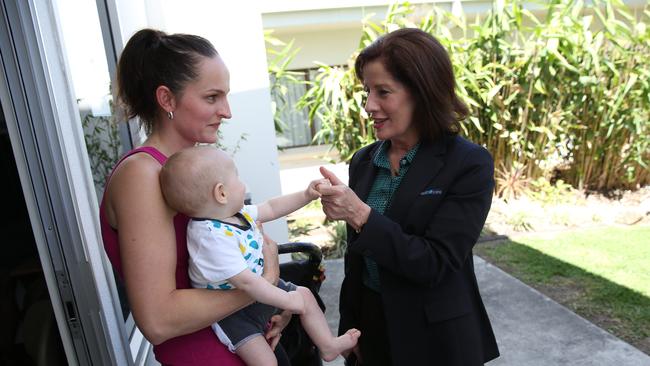
For Taryn Collins, it’s been a long, hard slog to recovery. She spent much of the first two years of Charlotte’s life in and out of the Belmont centre, undergoing electroconvulsive therapy and trying numerous medications before finding one that worked for her. She eventually ceased all medication and returned to work at Ipswich Hospital.
Four-and-a-half years on, Collins is well and enjoying her newly expanded family with Dan. Charlotte is a doting big sister to cheeky baby Vincent, born seven months ago. Collins’s infinitely milder second episode of PND is managed with medication, psychiatric and peer support.
“I’m not hiding it any more. I’m not ashamed I got PND. It’s not something I had any control over. A chemical went crazy in my brain. If I were a diabetic I’d take medication to stabilise my blood sugar,” says Collins, sharing a soggy arrowroot biscuit with Vincent at her Alderley home, in Brisbane’s northwest.
“This illness is awful. It robs you of so many precious moments, convinces you you’re a failure and that everyone would be better off without you. It’s not until I was well that I recognised those thoughts for what they are – total lies.
“PND does not define you as a mother or a woman. I want women to know there is hope. It will get better even if it means taking medication, seeing a psychologist or psychiatrist, or being in hospital. BCPND saved my life. I’m so grateful to be alive, to be able to enjoy my beautiful family.”
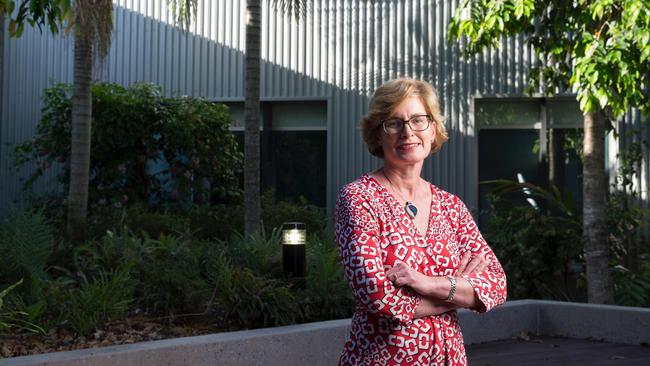
GOLD Coast University Hospital perinatal psychiatrist Dr Susan Roberts and Australasian Marcé Society for Perinatal Mental Health president Dr Lyndall White, who is also consultant psychiatrist with the BCPND, are two of many health professionals who spent decades lobbying Queensland Health for mother-and-baby inpatient perinatal mental health services. Next year Roberts will become lead clinician at the state’s first public unit at the Southport-based hospital, overseeing four specialist mother-and-baby beds for women diagnosed with a perinatal mental illness, as well as accompanying pre- and post-admission outreach services.
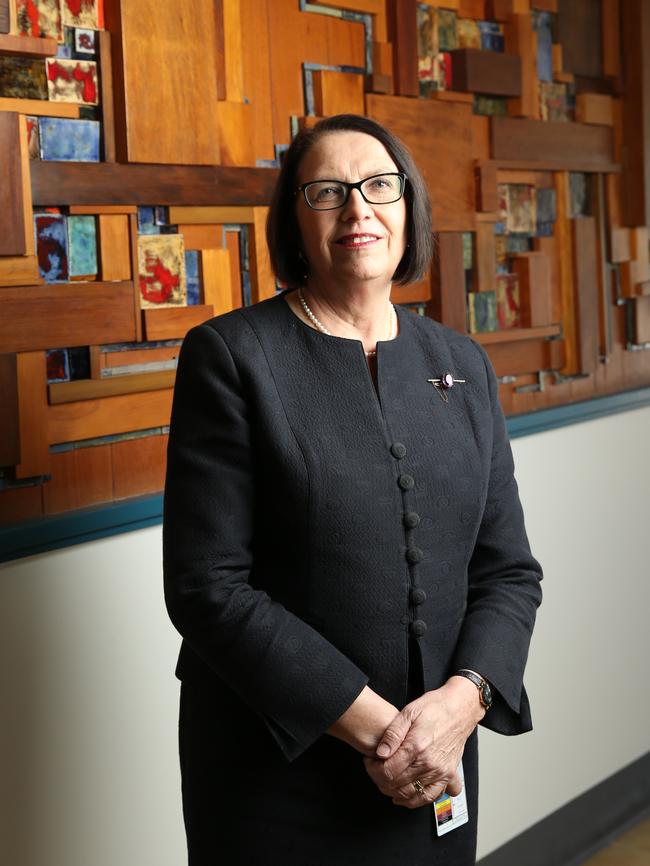
The planned inpatient facility is part of a new five-year, $30.2 million funding package to improve perinatal and infant mental health specialist services across the state. As part of the package, 10 new specialist positions providing support for severe to moderate perinatal mental health issues will begin to be rolled out in Brisbane, Sunshine Coast, Darling Downs, Townsville and Cairns hospitals by June 30. A further 13 day-programs providing intensive group support will also be established across the state, including tele-psychiatry services for rural and remote families. Funding will also be available for community organisations to deliver services.
While welcoming the development, both Roberts, 51, and White, 63, agree the new hospital unit will not meet demand.
“Four beds are what we have and what we will start out with. We’re very excited about that, but certainly we’d be advocating that more money is directed toward this sector,’’ says Roberts.
“We will be accepting patients from the local Gold Coast and southeast Queensland area and then it is my understanding that, after a period of time – perhaps six months – the unit would become a statewide service,” she says, adding that funding was available to help pay for travelling partners’ accommodation.
White, organiser of next year’s Australasian Marcé Society conference, expected to bring 400 perinatal mental health experts to Brisbane, adds: “The expertise we’ve got (in Queensland) is of an international standard. We haven’t got the numbers of beds available or the facilities we need for the demand, but a lot of this work is done exceptionally well at an outpatient level in the community.”
White says the UK has the greatest number of mother-and-baby units, there are a small number across Europe and the US has one, for day-stays only.
PANDA chief executive Terri Smith says it’s about time Queensland matched other states such as Victoria, which has six mother-and-baby units, Western Australia two, South Australia one, and NSW is also developing its first public unit.
“It’s a great step forward having these new units opening, but we think there’s still a long way to go,” Smith, 55, says from her Melbourne office. She says the biggest challenge is raising awareness of the high incidence of perinatal depression and anxiety, and reducing the stigma that prevents women getting help in a timely fashion.
New PANDA figures reveal more than one in four Australians have either suffered or know someone who has suffered perinatal depression. Still, the yet-to-be-released July 2016 survey findings report more than 40 per cent of Australians have no idea of the overall prevalence of the condition and more than 60 per cent are unaware that fathers can also experience ante- or post-natal anxiety and depression.
Smith says these insights reinforce messages found in a review of more than 50,000 calls logged in the first five years of PANDA’s national helpline, released earlier this year.
“The one overwhelming message is expecting and new parents do not anticipate perinatal anxiety or depression will affect them and, as a result, they are slow to recognise symptoms, slow to seek help and, therefore, suffer longer than they need to,” she says.
“The key barrier is stigmaor shame. Every day we hear the thing that stops people getting help is the shame women feel because they think (the illness) is their fault and there’s something wrong with them, that people will think they can’t be a good mother.”
Most calls to PANDA’s helpline were from women who had already had their baby, 53 per cent had no prior identified mental illness, and 65 per cent had experienced symptoms for more than four weeks. Fifteen per cent of callers had symptoms for more than a year. (These figures tend to overlap.)
“It’s beautiful having a baby and it’s expected that everything is going to be rosy and happy, there should be soft music and fluffy bunnies,” Smith says. “Watch TV ads and you know this, so it makes it very difficult for a woman to admit there’s something wrong. Our community still has such a stigma around mental health generally. I often use the analogy that if you brought a new baby into the world and then broke your arm, there would be outpourings of support and sympathy. It wouldn’t go unnoticed.
“But people rarely respond in those ways to mental illness, particularly if a woman can’t really identify what’s going on and doesn’t feel comfortable talking about it. This is a common and serious medical condition but we still don’t talk about it enough.”
Smith says one of the most alarming findings from the phone data review was the severity of illness many women were trying to deal with alone, and who needed – and were provided with – immediate assistance.
“About 50 per cent of our calls are women in a moderate to severe category of illness. Just about every day, we have two callers who are at extreme risk of hurting themselves or hurting the baby.”
SUICIDE is the leading cause of maternal death during pregnancy and within the first year of giving birth, not just in Queensland but nationally and internationally. Queensland Maternal and Perinatal Quality Council chair Professor David Ellwood says of 40 maternal deaths in the state between 2012 and 2014, eight were suicides. This accounts for 20 per cent of deaths, ahead of cardiovascular complications (17 per cent) and thromboembolism (15.1 per cent) – a trend evident in state statistics for more than a decade.
Latest Australian Institute of Health and Welfare figures show that of 105 maternal deaths between 2008 and 2012, which occurred within 42 days of a pregnancy’s end, 12 were suicides. In New Zealand, suicide accounted for 24 per cent of maternal deaths between 2006 and 2013.
Ellwood says the causes behind the “alarming” figures of maternal suicide are complex but include a lack of specific mental health services for women following birth. Filicide, where a person kills a son or daughter, is not well researched but statistics presented at a 2014 Brisbane conference revealed 92 per cent of mothers who killed their children had a diagnosed mental illness. Monash University research examining filicide cases in Victoria between 2000 and 2009 found mothers killed 11 children aged 0-4 years. Of these, 73 per cent had approached a GP for help and 73 per cent had used mental health services.
Smith says the horror of thankfully rare mother-child filicide cases can contribute to the stigma surrounding perinatal anxiety and depression. Postnatal psychosis is a medical emergency, which can involve disturbed thoughts, hallucinations, paranoia and powerful delusions.
“We tend to see these (cases) through a particular lens – the mother must have been so sick – because of what we do from day to day. We know a lot of people who call us are really scared about what might happen, scared they’ve had thoughts running through their heads and really scared about (the type of) thoughts,” Smith says.
“To some extent, the story of the mum and baby’s death is people’s worst nightmare. It’s really important that they look after their emotional health and it’s also important to know (perinatal depression and anxiety) are really common.”
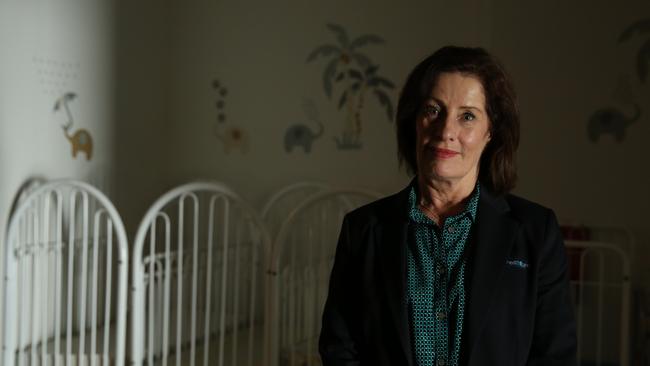
WHEN Mary Williams founded the Brisbane Centre for Post Natal Disorders in 1991 with psychiatrist Dr Enno Taemets, they treated a mother who had become so ill she killed her eldest child, and would have killed her baby if her husband hadn’t woken and stopped her. That woman spent a long time in the centre and was not jailed.
“It sounds so bloody morbid and awful but she’s the one who really sealed my commitment to this field, to these mothers,” says Williams, a psychiatric nurse and cognitive behaviour therapist who was made a Member in the Order of Australia last year for 25 years’ service to perinatal mental health.
Three years ago, Williams’s commitment was tested when an inpatient on approved day leave committed suicide, leaving behind a baby, husband and extended family. A coronial inquest attributed no blame; nonetheless, this was the first and only death of an inpatient in BCPND’s history.
Devastated for the family, Williams’s inevitable soul-searching saw her resolve to fight harder to raise awareness and encourage health professionals, families and communities to ask the hard questions around maternal mental health.
“What we’re trying to say to people, without sounding all doom and gloom, is that a psychiatric admission is almost 10 times more likely after the birth of a baby than at any other time in a person’s life,” she says. “And postnatal mental health issues are probably the most serious childbirth complications in terms of long-term ramifications.”
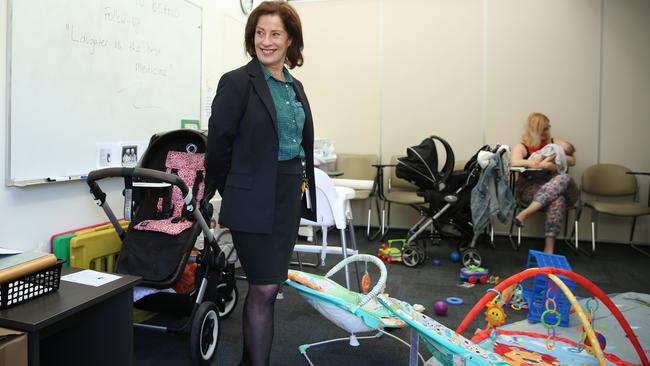
BCPND is a 10-bed unit with a 90 per cent occupancy rate; six months ago it was full with a list of women waiting for admission. A patient’s average stay is two weeks, with a two-year follow-up contact period. A six-week intensive cognitive behaviour therapy course is offered to in-and outpatients. Parents are then encouraged to attend a weekly follow-up group.
“Staying in a like-minded homogenous group where you can be reassured of your essential normalcy is intrinsic to recovery,” says Williams, 58, a mother of six, married to Noel, 60, an accountant.
“A lot of women form friendships and I know how powerful they can be. There’s a lot of evidence that when a second or third baby is born, if women have been involved in therapy, both (medication) and talking therapy plus that supportive therapy, the next episode of depression or anxiety – if it happens at all – is a lot less (severe). If women have attended follow-up groups for some period of time, and if they require readmission to the unit, it is generally for a lot shorter period. Where deaths have occurred, those women for various reasons have not kept in contact with their health professionals and have elected not to attend follow-up services.”
Williams says pressures on families have changed drastically in the past 25 years. More women are working, becoming mothers later, using assisted reproductive methods, and juggling family needs with a faster return to work. New and expecting parents are better informed thanks to “Dr Google” and the proliferation of parenting resources, but this can also lead to an unhealthy fear of birth and parenting.
Recent Australian research shows one in four women – and one in three first-time mums – suffers childbirth fear, leading to increased demand for epidurals and caesarean births. The fear, known as tocophobia, is sparked by worries about the baby’s life, phobia of pain, concerns for their own life, feeling inept, horror stories and previous traumatic experience. Women face unrealistic expectations to be glamorous in pregnancy, birth and regain their figures immediately after, while juggling the demands of a newborn.
Williams says the lack of adequate private health insurance is also an emerging concern. Couples either don’t have it, are unaware they’re not covered for psychiatric admissions, that their coverage does not include the baby’s border fees (around $70 a night at BCPND), or they have a large excess payment.
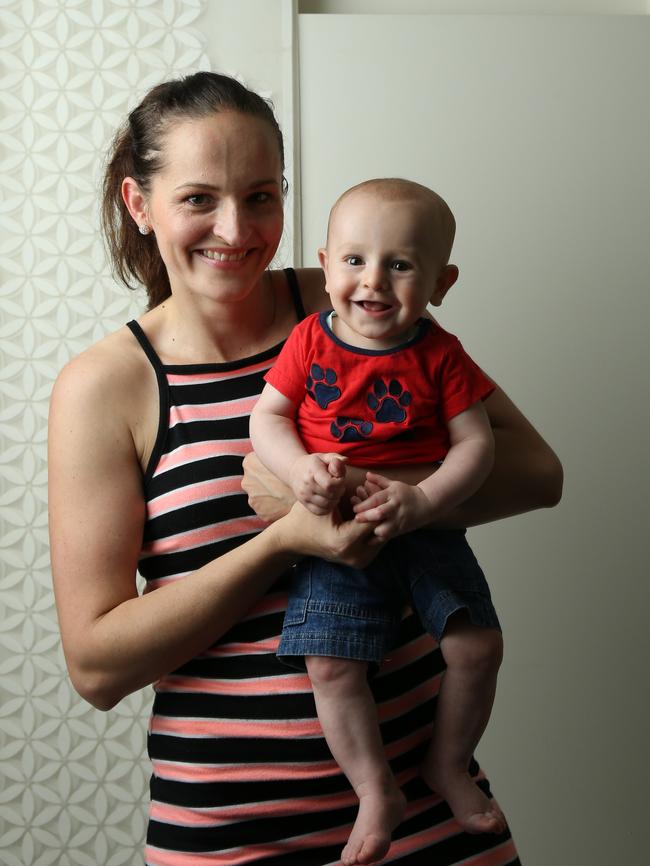
Taryn Collins estimated she was out of pocket about $15,000 for her BCPND admissions after Charlotte’s birth and upgraded her coverage before falling pregnant with Vincent.
“In the past year I would say 30 per cent of our calls from women wanting to come in have not been able to because of a formidable (insurance) gap – I’m talking $400-500 a day,” Williams says, adding the centre will waive baby border fees in certain cases.
Latest Australian Bureau of Statistics figures show in 2011-2012, 57 per cent of Australians aged 18 and over had private health insurance, and of those, nearly 80 per cent had both hospital and ancillary cover.
Williams is expecting her first grandchild in February and has some advice for all couples planning a family or expecting a child – check your private health coverage, and talk to your partner about how you were parented, what sort of parent you want to be, and what roles you expect each person to fulfil.
“Most importantly, expect the unexpected,” Williams says. “There’s an old Jewish saying, ‘man makes plans and God laughs’. There is no such thing as a predictable pregnancy, childbirth and afterwards. So many variables come into it.
“The last thing anyone expects is to end up in a psychiatric hospital with their baby. But I really believe PND and seeking help for PND is an opportunity for growth. Learning through that period, strengthening your psychological wellness, knowing everybody has unrealistic expectations and that there are lots of couples out there doubting themselves can only lead to a more solid family group.
“Let’s not be too Pollyanna-ish, but I believe most people who have an encounter with a postnatal mood disorder, with appropriate assistance, help and support, have a very bright future.
“We hold on to the hope for you until you’re ready to take it back.”
November 13-19 is Perinatal Depression & Anxiety Awareness Week
PANDA national helpline, (M-F, 10-5pm): 1300 726 306, panda.org.au
Brisbane Centre for Postnatal Disorders, Belmont Private Hospital: (07) 3398 0238 or 1800 700 274
Peachtree Perinatal Wellness: 0487 756 633, peachtree@peachtree.org.au

